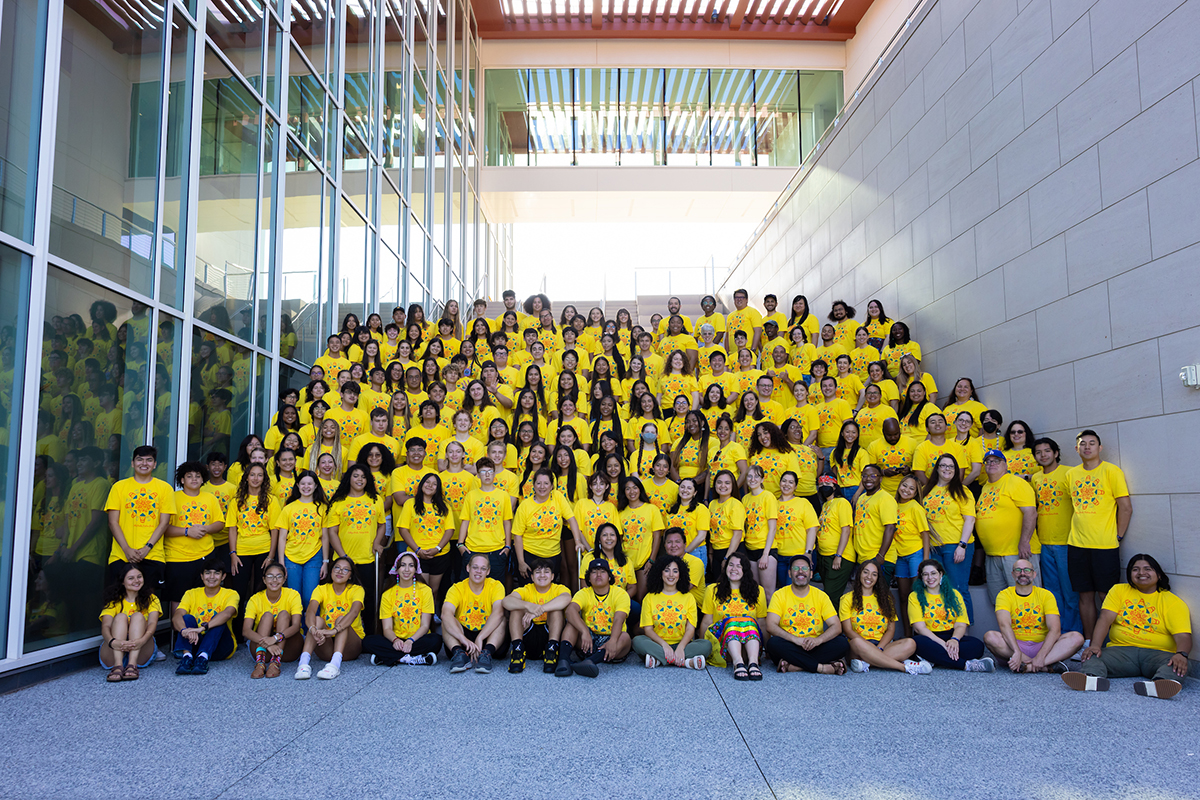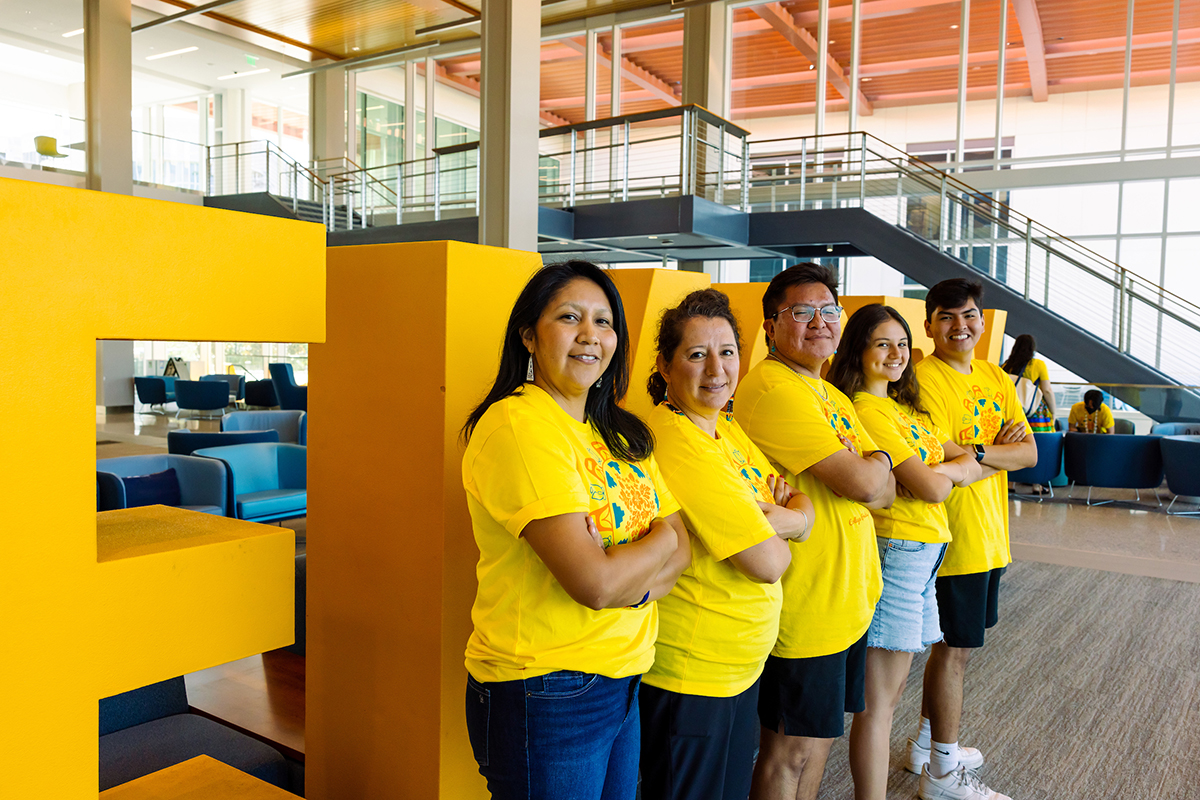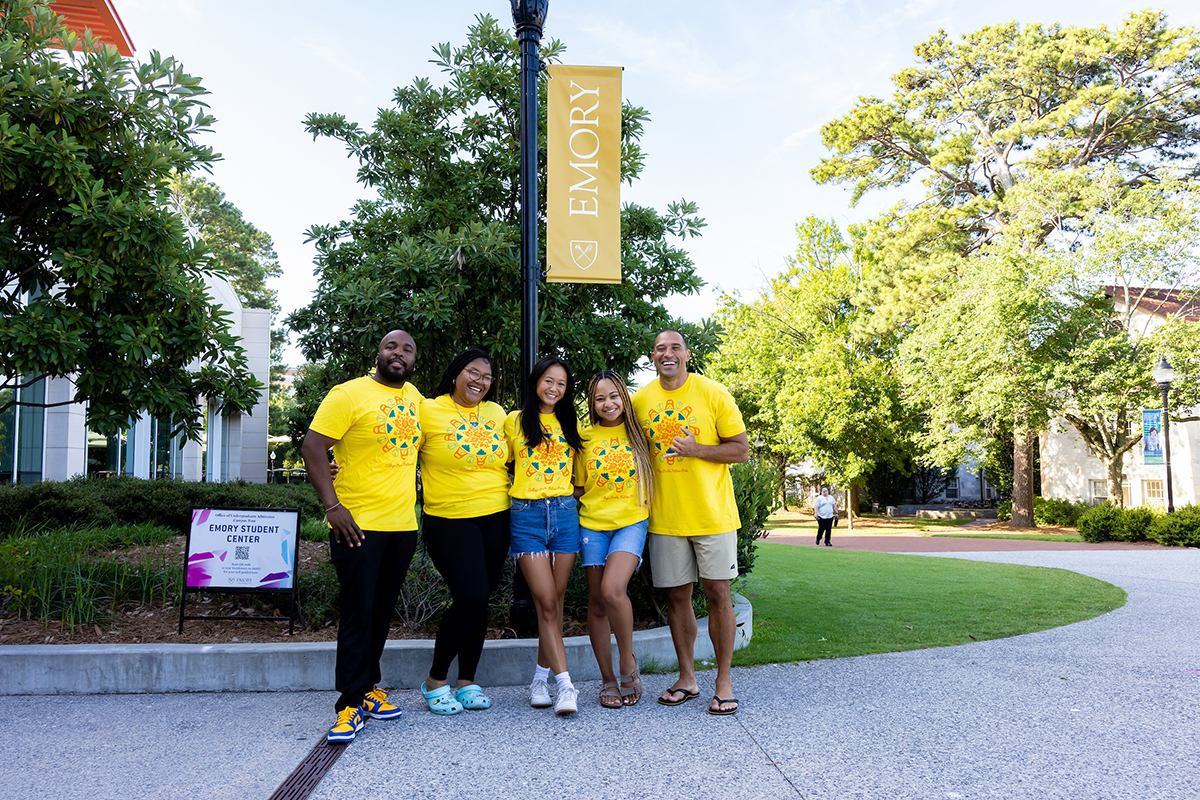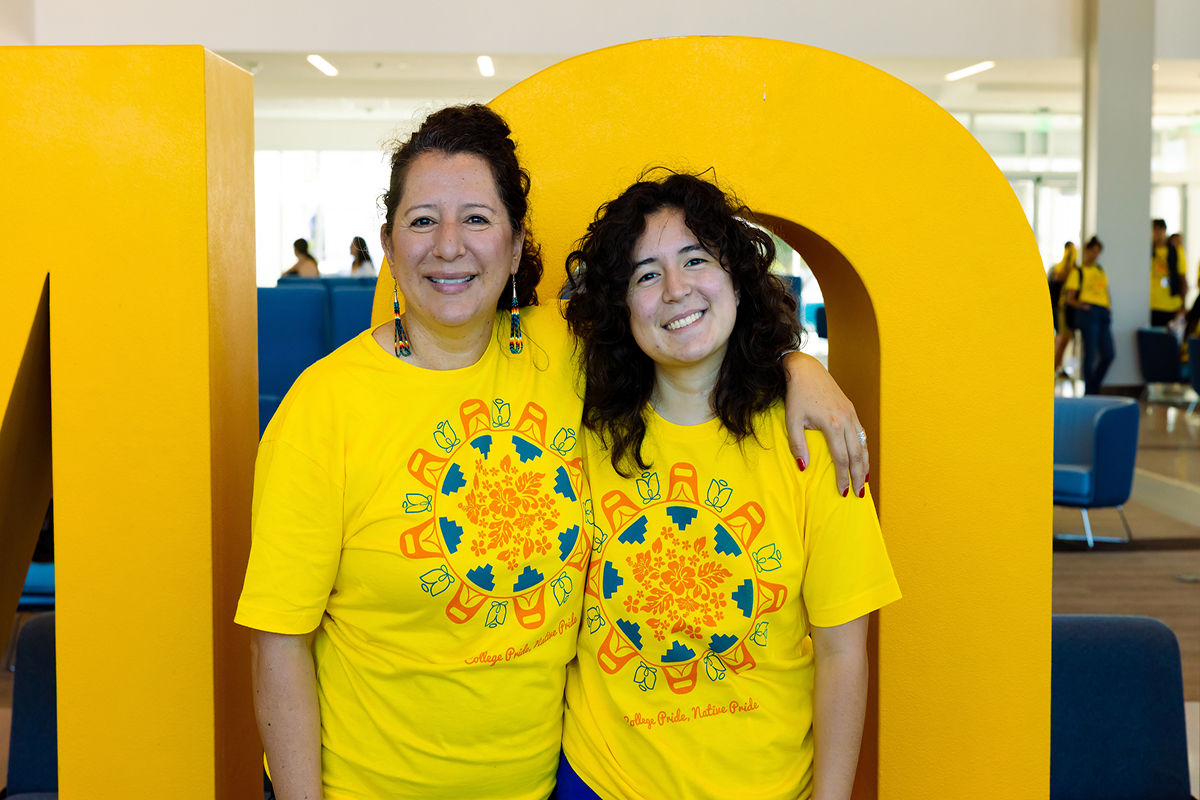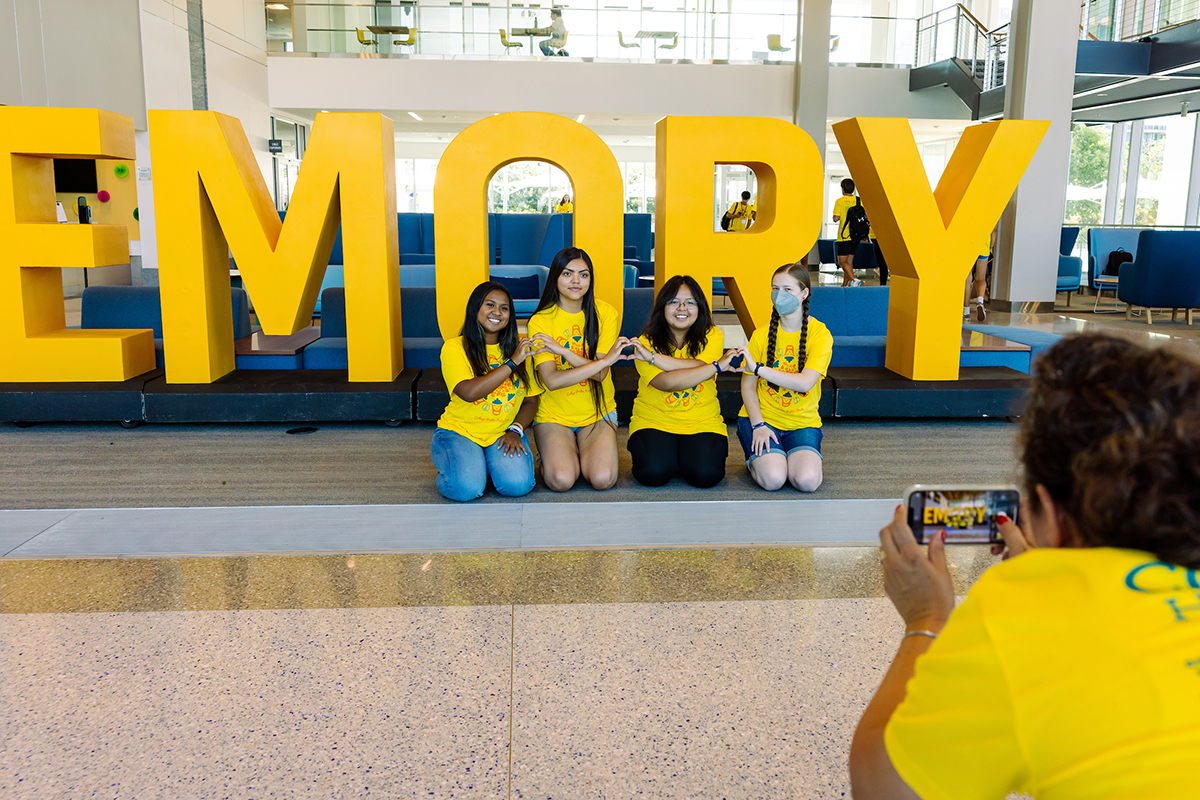“College pride! Native pride!”
This exclamation from Carmen Lopez, the executive director of College Horizons, resounded through the Emory Student Center. It’s the cue for students attending the annual College Horizons summer workshop to pause what they’re doing and listen up. It’s also an affirmation that no matter where they are, they belong. From July 6-14, Emory hosted the pre-college summer workshop, which included Native American, Alaska Native and Native Hawaiian high school students from across the nation.
According to the U.S. Department of Education, Native American students have the lowest college completion rate of any historically underrepresented group. However, 85% of College Horizons student participants graduate with a bachelor’s degree in five years.
“What I love about being a college-access organization is tapping into the intellectual resource of many colleges,” says Lopez, who is a citizen of the Navajo Nation. “We’re educators collectively cheering on these students. Our goal as a faculty cohort is shrinking the college-attainment gap.”
During the week, students eat, sleep and tour the Emory campus, while learning about college admissions and financial aid. They also work on their college application essays with advice from program faculty and mentors who are currently enrolled at a university. One of the highlights of the experience is the college fair, where students have a chance to meet with representatives from public and private colleges and universities, including Emory.
Native American/Indigenous students at Emory
Emory is one of 70 schools to participate in College Horizons. Beth Michel, senior associate dean of admission and the admissions office lead for Native American affairs, facilitated bringing the summer workshop on campus this year. She also serves on the Indigenous Language Path Working Group, which is charged with developing plans, research and programs that highlight Emory’s connection to Indigenous peoples. The group also coordinated Emory’s Muscogee (Creek) teach-in event last fall.
Michel, who is a citizen of the Tohono O’odham Nation, attended the first College Horizons program as a student in 1998. She believes that the workshop is important for students because it allows them to “envision for themselves what it would be like to attend college and Indigenize spaces across campus.”
If students apply and are accepted to Emory, they will hopefully encounter Malinda Maynor Lowery, Cahoon Family Professor of American History. Lowery was one of several faculty and staff from across the university who engaged with high school students throughout the week. During her keynote, Lowery highlighted the university’s commitment to Native American/Indigenous students, including leading the efforts to establish the Center for Native and Indigenous Studies, made possible by a recent Mellon grant.
Lowery, who is a citizen of the Lumbee Nation, also wants students to know that “Emory belongs to Native people like it belongs to everyone else.”
“Each one of these students is making history in their families, even if they aren’t first-generation college graduates,” says Lowery. “They are also making space for others to come behind them. Many are also working in a trajectory of deep value of education. Even though they haven’t had access to higher education, Native people have had education systems for millennia. It’s consistent with the past and future.”
“We want students to have access to their Indigenous and Western knowledge systems,” says Lopez. “They can come to college with both.”
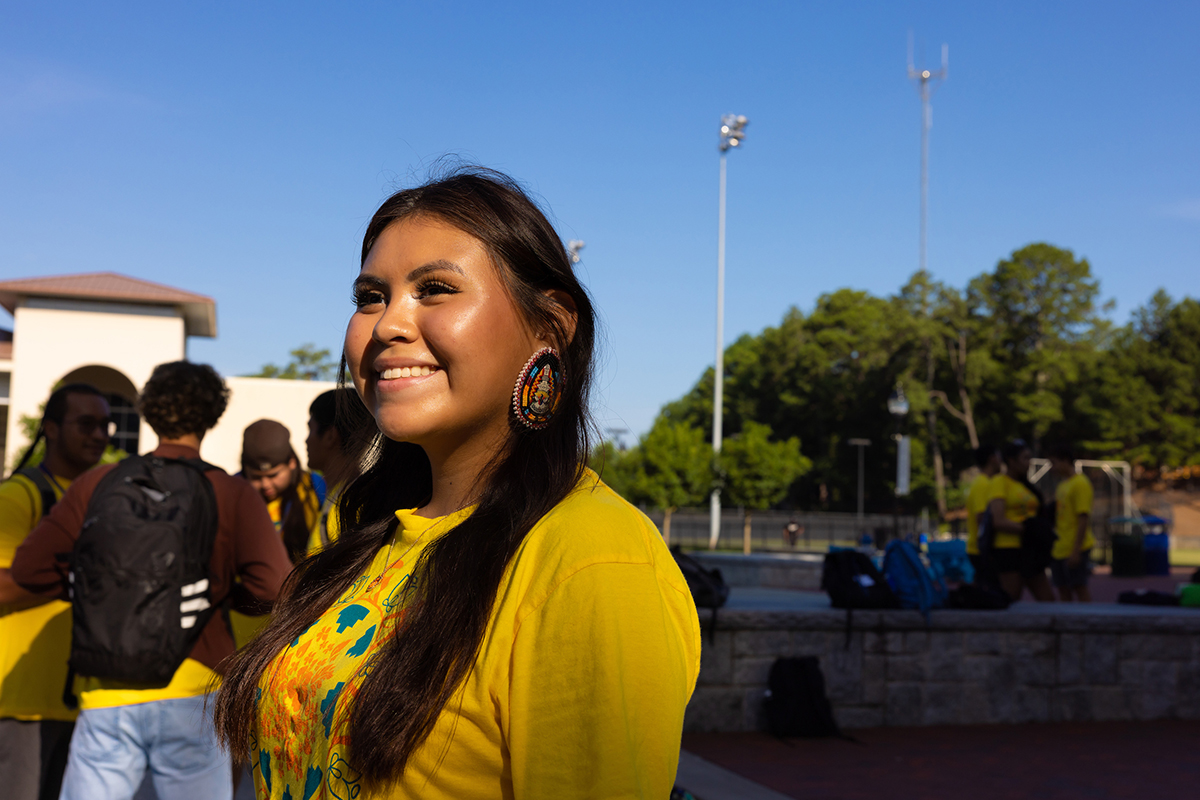
At College Horizons, students get to envision themselves staying in residence halls, eating in dining halls, and attending classes.
What the students are saying
During the College Horizons workshop, more than 100 Native American/Indigenous high school students experienced the Emory campus. Some were visiting for the first time, and others listed Emory as their dream school. They came from as close as Alabama and as far as Hawaii.
Zachary Prudhomme is a senior from Houston, Texas, and a citizen of the Osage Nation. He is on his high school football and track and field teams, and he also works backstage for the theater department. He wants to become a mechanical engineer and help the U.S. get to carbon zero. He says that the College Horizons program reinforced a sense of pride for him.
“We heard a speech recently about how our people picked us to be here and how we should step up and be the Native Americans in society,” says Prudhomme. “We shouldn’t back down because we’re Native Americans; we should step up above everyone else, because this is our land.”
Clarissa Bagay is a senior from Colorado Springs, Colorado, and a citizen of the Navajo Nation. She plays soccer for her high school team and helps with Kinaaldá ceremonies, which are coming-of-age ceremonies for girls in her community. She says that the College Horizons experience has helped with SAT preparation. Her dream is to become an artist.
Jude Thomas is a senior from Farmington, New Mexico, and a citizen of the Navajo Nation. He is a guard on his high school basketball team, president of the National Honor Society and a member of his school’s Naat'áani Youth Council. He admits that he was initially on the fence about attending College Horizons, but that he’s enjoyed meeting Native people from different nations and learning about different types of colleges. He hopes to pursue a career in sports management.
Sanaya Morris is a senior from Southampton, New York, and a citizen of the Shinnecock Indian Nation. At her school, she is co-founder of the Black Girl Magic Club and vice president of Best Buddies, an organization that supports people who are living with disabilities. She also participates in her high school’s diversity, equity and inclusion task force and plays field hockey and lacrosse. Her dream is to be a lawyer. She said that College Horizons has made her feel less alone.
“This is my third time here at Emory, and my best friend’s sister goes here, so I’m familiar with the campus,” says Morris. “Staying on campus, walking around, going to the student center every day — it’s really made me fall in love with Emory. I really would like to go here, and I could totally see myself here. It’s a beautiful campus.”


